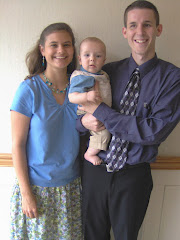Here's a story of non-transformation from the book "The Life You’ve Always Wanted" (27-9) by John Ortberg. I don't recommend the book. It is more of book about how you use Jesus to have a wonderful life, but it does have a good story.
Do we expect transformation in the lives of believers in our local churches? How long does someone have to come to your local church before we don't expect them to grow in grace anymore? What kind of sinful attitudes, language, or actions have we accepted from people who claim to be Christians just because they have been around for a long time?
For example, John Ortberg tells the story about the man who never changed.
“Hank, as we’ll call him, was a cranky guy. He did not smile easily, and when he did, the smile often had a cruel edge to it, coming at someone’s expense. He had a knack for discovering islands of bad news in oceans of happiness. He would always find a cloud where others saw a silver lining.
Hank rarely affirmed anyone. He operated on the assumption that if you compliment someone, it might lead to a swelled head, so he worked to make sure everyone stayed humble. His was a ministry of cranial downsizing.
His native tongue was complaint. He carried judgment and disapproval the way a prisoner carries a ball and chain. Although he went to church his whole life, he was never unshackled. A deacon in the church asked him one day, ‘Hank, are you happy?’ Hank paused to reflect, then replied without smiling, ‘Yeah.’ ‘Well, tell your face,’ the deacon said. But so far as anybody knows, Hank’s face never did find out about it.’
Occasionally, Hank’s joylessness produced unintended joy for others. There was a period of time when his primary complaints centered around the music in the church. ‘Its too loud!’ Hank protested – to the staff, the deacons, the ushers, and eventually innocent visitors in the church.
We finally had to take Hank aside and explain that complaining to complete strangers was not appropriate and he would have to restrict his laments to a circle of intimate friends. And that was the end of it. So we thought.
A few weeks later, a secretary buzzed me on the intercom to say that an agent from OSHA – the Occupational Safety and Health Administration – was here to see me. ‘I’m here to check out a complaint,’ he said. As I tried to figure out who on the staff would have called OSHA over a church problem, he began to talk about decibel levels at airports and rock concerts.
‘Excuse me,’ I said, ‘are you sure this was someone on the church staff that called?’ ‘No,’ he explained. ‘If anyone calls – whether or not they work here – we’re obligated to investigate.’
Suddenly the light dawned: Hank had called OSHA and said, ‘The music at my church is too loud.’ And they sent a federal agent to check it out. By this time the rest of the staff had gathered in my office to see the man from OSHA. ‘We don’t mean to make light of this,’ I told him, ‘but nothing like this has ever happened around here before.’
‘Don’t apologize,’ he said. ‘Do you have any idea how much ridicule I’ve faced around my office since everyone discovered I was going out to bust a church?’”
Ortberg continues to describe Hank: His children didn’t know him. He could not effectively love his wife or his children or people outside his family. He was easily irrated. He had little use for the poor, and a casual contempt for those who accents or skin pigment differed from his own. He critiqued, judged and complained, and his soul got a little smaller each year.”
“Hank was not changing. He was once a cranky young guy, and he grew up to be a cranky old man. But even more troubling than his lack of change was the fact that nobod was surprised by it. No one seemed bothered by the condition. It was not an anomaly that caused head scratching bewilderment. No church consultants were called in. No emergency meetings were held to probe the strange case of this person who followed the church’s general guidelines for spiritual life and yet was nontransformed.
The church staff did have some expectations. We expected that Hank would affirm certain religious beliefs. We expected that he would attend services, read the Bible, support the church financially, pray regularly, and avoid certain sins. But here’s what we didn’t expect: We didn’t expect that he would progressively become the way Jesus would be if he were in Hank’s place. We didn’t assume that each year would find him a more compassionate, joyful, gracious, winsome personality. We didn’t anticipate that he was on the way to becoming a source of delight and courtesy who overflowed with ‘rivers of living water.’ So we were not shocked when it didn’t happen. We would have been surprised if it did!”
WARNING: A Christian, holiness, & biblical worldview.
01 September 2009
Subscribe to:
Post Comments (Atom)
.jpg)

No comments:
Post a Comment